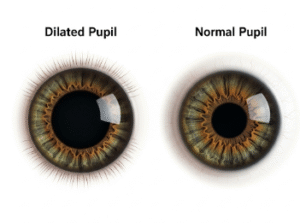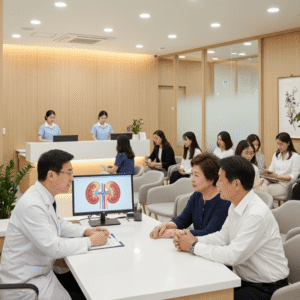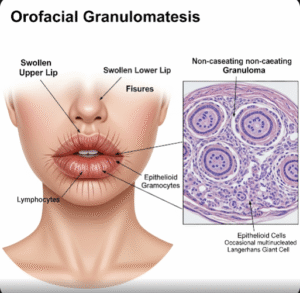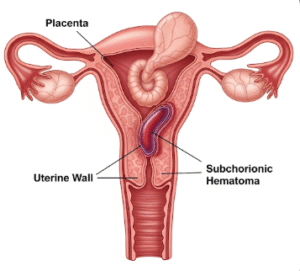Overview
Asthma is a chronic respiratory condition that causes inflammation and narrowing of the airways, making breathing difficult. It affects people of all ages and can range from mild to severe. Symptoms may be triggered by allergens, exercise, cold air, or respiratory infections. In Korea, asthma is a common health concern, especially in urban areas with high pollution levels. With proper management and treatment, most people with asthma can lead active and healthy lives.
What is Asthma?
Asthma is a long-term lung disease characterized by recurring episodes of wheezing, breathlessness, chest tightness, and coughing. It occurs when the airways become inflamed and overreact to various stimuli, leading to swelling, mucus production, and muscle tightening around the airways.
Asthma can be classified as allergic (extrinsic) or non-allergic (intrinsic), and symptoms often worsen at night or early morning.
Symptoms
- Shortness of breath
- Wheezing (a whistling sound when breathing)
- Chest tightness or pressure
- Coughing, especially at night or early morning
- Difficulty breathing during exercise or cold weather
- Increased mucus production
Causes
Asthma is caused by a combination of genetic and environmental factors. Triggers vary from person to person but may include:
- Allergens (e.g., pollen, dust mites, pet dander)
- Respiratory infections (e.g., cold or flu)
- Air pollution or smoke
- Cold or dry air
- Physical activity (exercise-induced asthma)
- Stress or strong emotions
- Certain medications (e.g., aspirin, beta-blockers)
Risk Factors
- Family history of asthma or allergies
- Childhood respiratory infections
- Exposure to tobacco smoke
- Living in urban or polluted areas
- Obesity
- Occupational exposure to chemicals or dust
- Allergic conditions like eczema or hay fever
Complications
- Frequent hospitalizations or emergency room visits
- Decreased quality of life and physical activity
- Sleep disturbances due to nighttime symptoms
- Increased risk of respiratory failure in severe cases
- Side effects from long-term medication use
Prevention
While asthma cannot be completely prevented, the following measures can reduce the risk of flare-ups and complications:
- Avoid known triggers and allergens
- Maintain a clean and dust-free home environment
- Use air purifiers in polluted or high-pollen areas
- Get vaccinated against flu and pneumonia
- Monitor symptoms and follow an asthma action plan
- Avoid smoking and secondhand smoke
Treatment Options in Korea
South Korea has well-developed respiratory care services and advanced diagnostic tools for asthma management, with care available in general hospitals, pulmonology clinics, and allergy centers.
1. Diagnosis
- Pulmonary Function Tests (PFT): Measures lung capacity and airflow
- Spirometry: A common test to confirm asthma diagnosis
- Allergy Testing: Identifies triggers like dust, pollen, or food
- Methacholine Challenge Test: Assesses airway hyperresponsiveness
2. Medications
- Inhaled corticosteroids (ICS): First-line anti-inflammatory treatment
- Long-acting beta agonists (LABAs): Used with ICS for long-term control
- Leukotriene receptor antagonists: Oral medications to reduce inflammation
- Rescue inhalers (short-acting beta agonists like salbutamol): For immediate relief
- Biologic therapies (e.g., omalizumab): For severe allergic asthma cases
3. Inhaler Training & Monitoring
- Education on correct inhaler use to maximize drug delivery
- Regular follow-ups with pulmonologists
- Use of peak flow meters for home monitoring
4. Allergy and Immunotherapy Services
- Allergen avoidance strategies
- Sublingual or injection-based immunotherapy for long-term desensitization
5. Hospital-Based Support
- Emergency care for acute asthma attacks
- Asthma clinics with multidisciplinary teams
- Pulmonary rehabilitation for chronic or severe asthma patients













